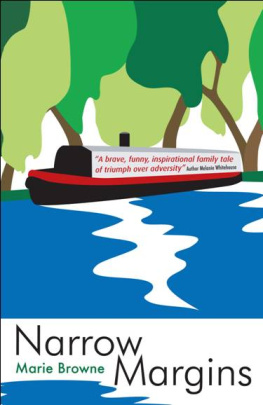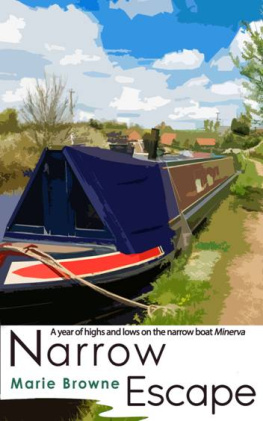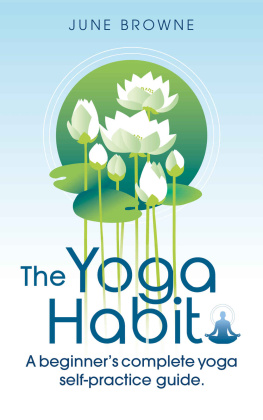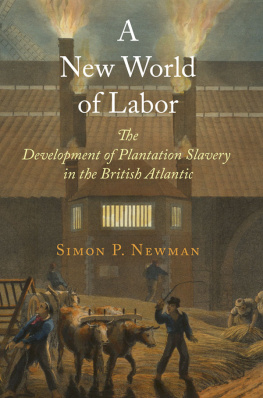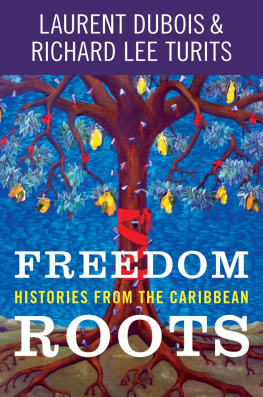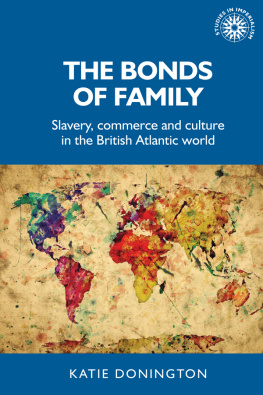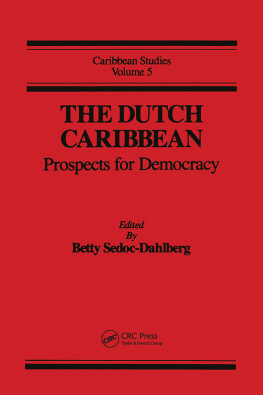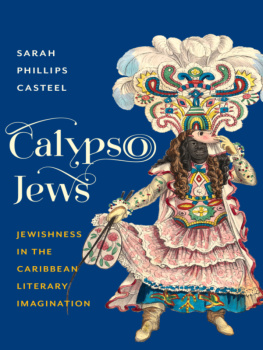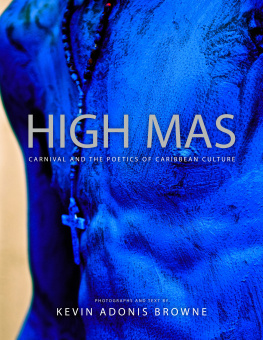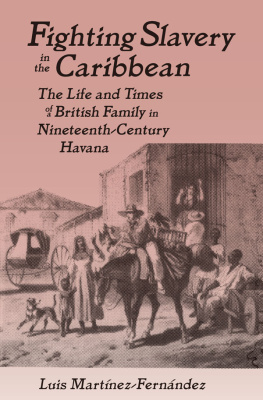Browne - Surviving Slavery in the British Caribbean
Here you can read online Browne - Surviving Slavery in the British Caribbean full text of the book (entire story) in english for free. Download pdf and epub, get meaning, cover and reviews about this ebook. City: Antilles anglophones;Berbice (Guyana;comté);English-speaking Caribbean Area;Guyana;Berbice, year: 2017, publisher: University of Pennsylvania Press, Inc.;University of Pennsylvania Press. C 2017, genre: Politics. Description of the work, (preface) as well as reviews are available. Best literature library LitArk.com created for fans of good reading and offers a wide selection of genres:
Romance novel
Science fiction
Adventure
Detective
Science
History
Home and family
Prose
Art
Politics
Computer
Non-fiction
Religion
Business
Children
Humor
Choose a favorite category and find really read worthwhile books. Enjoy immersion in the world of imagination, feel the emotions of the characters or learn something new for yourself, make an fascinating discovery.

- Book:Surviving Slavery in the British Caribbean
- Author:
- Publisher:University of Pennsylvania Press, Inc.;University of Pennsylvania Press. C 2017
- Genre:
- Year:2017
- City:Antilles anglophones;Berbice (Guyana;comté);English-speaking Caribbean Area;Guyana;Berbice
- Rating:3 / 5
- Favourites:Add to favourites
- Your mark:
- 60
- 1
- 2
- 3
- 4
- 5
Surviving Slavery in the British Caribbean: summary, description and annotation
We offer to read an annotation, description, summary or preface (depends on what the author of the book "Surviving Slavery in the British Caribbean" wrote himself). If you haven't found the necessary information about the book — write in the comments, we will try to find it.
Surviving Slavery in the British Caribbean — read online for free the complete book (whole text) full work
Below is the text of the book, divided by pages. System saving the place of the last page read, allows you to conveniently read the book "Surviving Slavery in the British Caribbean" online for free, without having to search again every time where you left off. Put a bookmark, and you can go to the page where you finished reading at any time.
Font size:
Interval:
Bookmark:
SURVIVING SLAVERY IN THE BRITISH CARIBBEAN
EARLY AMERICAN STUDIES
Series editors:
Daniel K. Richter, Kathleen M. Brown,
Max Cavitch, and David Waldstreicher
Exploring neglected aspects of our colonial,
revolutionary, and early national history and culture,
Early American Studies reinterprets familiar themes
and events in fresh ways. Interdisciplinary in character,
and with a special emphasis on the period from about
1600 to 1850, the series is published in partnership with the
McNeil Center for Early American Studies.
A complete list of books in the series
is available from the publisher.

RANDY M. BROWNE

Copyright 2017 University of Pennsylvania Press
All rights reserved. Except for brief quotations used for purposes of review or scholarly citation, none of this book may be reproduced in any form by any means without written permission from the publisher.
Published by
University of Pennsylvania Press
Philadelphia, Pennsylvania 19104-4112
www.upenn.edu/pennpress
Printed in the United States of America on acid-free paper
1 3 5 7 9 10 6 4 2
Library of Congress Cataloging-in-Publication Data
Names: Browne, Randy M., author.
Title: Surviving slavery in the British Caribbean / Randy M. Browne.
Other titles: Early American studies.
Description: 1st edition. | Philadelphia : University of Pennsylvania Press, [2017] | Series: Early American studies | Includes bibliographical references and index.
Identifiers: LCCN 2016056687 | ISBN 978-0-8122-4940-8 (hardcover : alk. paper)
Subjects: LCSH: SlavesGuyanaBerbiceSocial conditions19th century. | SlavesGuyanaBerbiceSocial life and customs19th century. | SlavesLegal status, laws, etc.GuyanaBerbiceHistory19th century. | SlaverySocial aspectsGuyanaBerbiceHistory19th century. | SlaverySocial aspectsCaribbean, English-speakingHistory19th century. | SlaveryLaw and legislationGuyanaBerbiceHistory19th century. | SurvivalGuyanaBerbiceHistory19th century. | ViolenceGuyanaBerbiceHistory19th century.
Classification: LCC HT1140.B4 .B76 2017 | DDC
306.3/62098815dc23
LC record available at https://lccn.loc.gov/2016056687

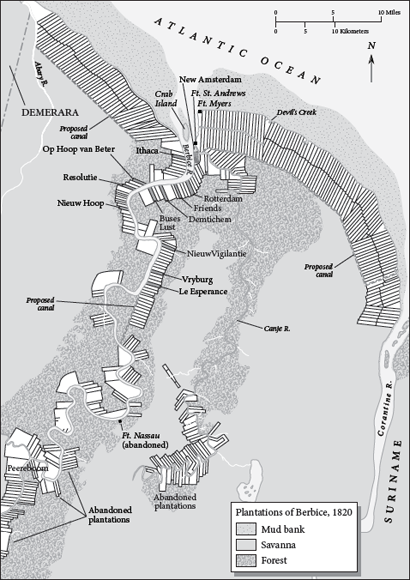
Map 1. Berbice, ca. 1820
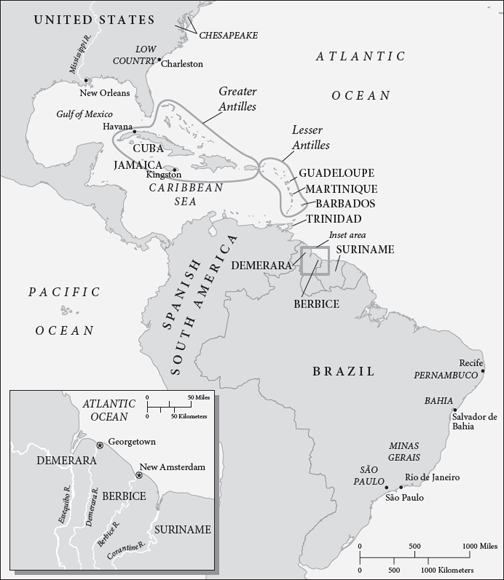
Map 2. Major Plantation Societies, ca. 1820
Everyone dies, but few people face the horror of being sealed in a coffin while still alive. One man who did was Harry, an enslaved African laborer on a coffee plantation along the Berbice River (in present-day Guyana). Along with thousands of other African captives, Harry had been taken to Berbice, a British colony on the Caribbean coast of South America, toward the end of the eighteenth century. By 1825, when Harry was in his mid-thirties, he had endured decades of brutal work in one of the deadliest slave societies in the Americas. When Harry got sick, it would have come as no surprise, but by June, Harry was so ill that he swelled all over [and] he was able to do nothing, according to his friend Billy, another enslaved African. Several months of medical attention did nothing to improve Harrys condition, and his owner, Richard Bell, grew impatient. He tried flogging Harry to force him back to the field, but that did not work. Harry was barely breathing by the time Bell sent him to the plantations sick house. Expecting Harry to die soon, Bell ordered an enslaved carpenter, Demerara, to make a coffin. Billy described the gruesome scene that unfolded when Demerara went to where Harry was lying. Harry opened his eyes and saw Demerara holding a measuring stick over him. He knew what was happening. He struggled briefly to sit up, then gave up and hung down his head. Horrified, Billy protested to his owners wife that it was not good nor right fashion to make a coffin for a living man. His owner responded by ordering Billy and two other men to dig a grave. A few hours later, Harry, still frothing at the mouth, was put in the coffin & was nailed up.
What is remarkable about this case is not so much its horrorthis was a society full of atrocitiesbut that we know it at all. We know about the final hours of Harrys life because Billy was angry enough to complain to a militia officer, who, complying with his official responsibility, forwarded the case to Berbices fiscal, the legal authority in charge of investigating enslaved peoples complaints. The fiscal summoned Billy, his owner, and other witnesses to Berbices capital, New Amsterdam, to testify. When questioned by the fiscal and other members of the Court of Criminal Justice, Billy emphasized the
Ultimately, the court believed Billys account but did not find Bells actions criminal. The court was sorry to observe that Bell has shown a want of proper feeling in causing a Coffin to be made for a negro previous to his death (although his fate appeared to have been inevitable), which was not in itself a Criminal act [but] might yet operate prejudicially on the minds of his negroes by creating discontent. The court admonished Bell before handing Billy over to him to be punished at his discretion for having complained without a legal case. Billy, who had experienced floggings so severe that he vomited blood and fainted and seen Bell force a man to drink cow urine, must have known all too well what kind of sadistic tortures he would soon endure for having made a formal complaint against his owner.
Billys story was one of several hundred preserved in the remarkable and little-used archive that distinguishes early nineteenth-century Berbice from other American slave societies. These records of enslaved peoples complaints offer striking first-person testimony of the tremendous physical and emotional suffering they endured and an imperfect record of their responses. Like Harry, the overwhelming majority of enslaved Africans and their descendants suffered greatly and died all too soon, worked to death by greedy and callous enslavers. In addition to the litany of horrors one would expect to find, these records also reveal a less familiar story about enslaved peoples efforts to navigate the brutal worlds they inhabited and, in particular, their engagement with the colonial legal system to claim rights and protection. In Berbice, thousands of enslaved people turned to the fiscal and other officials, using the law to protest abuses, negotiate complex relationships, and struggle to survive under desperate conditions. Listening closely to their voices challenges us to rethink our assumptions about the power relationships of Atlantic slavery. In particular, viewing slavery through the eyes of enslaved people themselves, or at least over their shoulders, prompts us to reconsider enslaved peoples well-known struggle against slavery as first and foremost a fight for sheer survival. Surviving Slavery in the British Caribbean therefore takes the problem of survival as its starting point for a reconsideration of slavery and power.
In the century and a half before the abolition of the British transatlantic slave trade in 1808, some 2.7 million captive Africans were brought to the British West Indies. Yet by 1808, the total British Caribbean slave population was barely a third that numberabout 775,000. After the arrival of new African captives to Britains Caribbean colonies ended, the population plummeted as slaves died faster than they could reproduce; by 1834, only about 665,000 slaves were still alive. Enslaved people were therefore painfully aware of what historians have generally recognized only as a demographic fact: that the basic problem of Atlantic slavery was one of survival.
Next pageFont size:
Interval:
Bookmark:
Similar books «Surviving Slavery in the British Caribbean»
Look at similar books to Surviving Slavery in the British Caribbean. We have selected literature similar in name and meaning in the hope of providing readers with more options to find new, interesting, not yet read works.
Discussion, reviews of the book Surviving Slavery in the British Caribbean and just readers' own opinions. Leave your comments, write what you think about the work, its meaning or the main characters. Specify what exactly you liked and what you didn't like, and why you think so.



